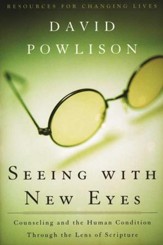Quotes about Psychology
In my opinion, advocating, allowing and practicing psychiatric and psychoanalytical dogmas within the church is every bit as pagan and heretical (and therefore perilous) as propagating the teachings of some of the most bizarre cults. The only vital difference is that the cults are less dangerous because their errors are more identifiable.
I suspect that the one reason why the Bible does not foster self-love and self-esteem in the fashion of several strands of popular psychology is because God, unlike popular psychologists, is infinitely aware of the danger of fueling idolatry. The first temptation was the temptation to de-god God and turn self into god. Appeals to self-love and self-esteem, even at their best and even when well-intentioned, can never be far from that danger. Far better to seek the powerful remedies of the gospel.
Love and the Intoxication of the Diligent Routine by D.A. Carson taken from Love in the Hard Places by D.A. Carson, 2002, Crossway Books, a division of Good News Publishers, Wheaton Illinois 60187, www.crosswaybooks.org. Page 189.
Outside the Word and the Spirit there are no solutions to any of the problems of the human soul. Only God knows the soul and only God can change it. Yet the widely accepted ideas of modern psychology are theories originally developed by atheists on the assumption that there is no God and the individual alone has the power to change himself into a better person through certain techniques. Surprisingly, the church has embraced many of the popular theories of secular psychology, and their impact over the past few years has been [devastating].
Resurrecting and Old Heresy from Our Sufficiency in Christ, 1991, Crossway Books, a division of Good News Publishers, Wheaton Illinois 60187, www.crosswaybooks.org. p. 31-32. Get this book!
Psychology is no more a science than the atheistic evolutionary theory upon which it is based. Like theistic evolution, “Christian psychology” is an attempt to harmonize two inherently contradictory systems of thought. Modern psychology and the Bible cannot be blended without serious compromise to or utter abandonment of the principle of Scripture’s sufficiency.
Does God Need a Psychiatrist? from Our Sufficiency in Christ, 1991, Crossway Books, a division of Good News Publishers, Wheaton Illinois 60187, www.crosswaybooks.org. p. 66. Get this book!
Psychological sanctification has become a substitute for the Spirit-filled life. What point is there in seeking the Holy Spirit’s comfort if, after all, deep-seated emotional problems can be addressed only by a trained psychologist, or if people can come to grips with their lives only by getting in touch with their childhood, or if the answers to our deepest hurts are buried deep within us? If those things are true, we don’t need an Advocate; we need a therapist. And that is precisely the route many in the church have chosen.
Psychological Sanctification? from Our Sufficiency in Christ, 1991, Crossway Books, a division of Good News Publishers, Wheaton Illinois 60187, www.crosswaybooks.org. p. 105. Get this book!
Sadly, many evangelical churches today deny in practice the sufficiency of God’s grace for all of life’s problems, supplementing it with the humanistic theories of psychology. The idea that the grace of God is sufficient for even the most serious issues believers may face is derided as antiquated, simplistic, and naïve, like putting a Band-Aid on a broken leg. It is suggested by so-called Christian psychologists that divine grace may be sufficient for solving shallow problems, but deeper issues require therapy.
“Christian psychology” as the term is used today is an oxymoron. The word psychology no longer speaks of studying the soul; instead it describes a diverse menagerie of therapies and theories that are fundamentally humanistic. The presuppositions and most of the doctrine of psychology cannot be successfully integrated with Christian truth. Moreover, the infusion of psychology into the teaching of the church has blurred the line between behavior modification and sanctification.
Does God Need a Psychiatrist? from Our Sufficiency in Christ, 1991, Crossway Books, a division of Good News Publishers, Wheaton Illinois 60187, www.crosswaybooks.org. p. 58.
[Inaccurate assumptions of psychology include] human nature is basically good, people have the answers to their problems inside them, the key to understanding and correcting a person’s attitudes and actions lies somewhere in his past, individuals’ problems are the result of what someone else has done to them, human problems can be purely psychological in nature – unrelated to any spiritual or physical condition, deep-seated problems can be solved only by professional counselors using therapy, Scripture, prayer, and the Holy Spirit are inadequate and simplistic resources for solving certain types of problems.
Does God Need a Psychiatrist? from Our Sufficiency in Christ, 1991, Crossway Books, a division of Good News Publishers, Wheaton Illinois 60187, www.crosswaybooks.org. p. 60-61.
Sin is called sickness, so people think it requires therapy, not repentance. Habitual sin is called addictive or compulsive behavior, and many surmise its solution is medical care rather than moral correction.
Does God Need a Psychiatrist? from Our Sufficiency in Christ, 1991, Crossway Books, a division of Good News Publishers, Wheaton Illinois 60187, www.crosswaybooks.org. p. 67.
A Trojan horse full of dangerous psycho-fantasies has been professionally prepared for us by Christian psychiatrists and psychologists… At base, such therapies stand upon dogma, not scientific observations, and the dogma is the odious one of Freud and his followers who were some of the century’s most anti-Christ teachers. No amount of well- intentioned refinement of deadly doctrines will make them clean for use by Christians. Though gems are usually found in coal mines, Christians who go fossicking for gems of God’s truth in psychoanalytic coal mines will usually emerge empty-handed and filthy… Christians of discernment should avoid the dangerous system completely (Hilton Terrell).
The amount of research against psychology is amazing and from people in their own camps… The impossibility of integration of avowedly pagan psychologists with Scripture seems obvious. One begins to wonder whether these promoters of psychology have any biblical discernment… Church leaders must bear the guilt of the invasion of psychology into the church. These are the people who are ordained of God to guard the minds of their sheep (I Tim. 4:1, 2, 6). Instead, they have invited wolves into the fold. Christian publishers are guilty as well. The “profit margin” has become the most important consideration for them. In reality Christian publishers ought to be under the authority of the church, so even in this area church leaders are at fault.
Let us be ruthless to root out theoretical structures that view people as psychological or socio-pyschological abstractions: the phenomena observed are not “ego defense mechanisms” but are pride’s offensive, defensive, and deceptive strategies. And let us also reject the therapeutic assumptions that are consequent to the theory: they are poor and deceptive substitutes for the Gospel of Jesus Christ.
Seeing With New Eyes, P&R Publishers, 2003, p. 198. Get this book!








